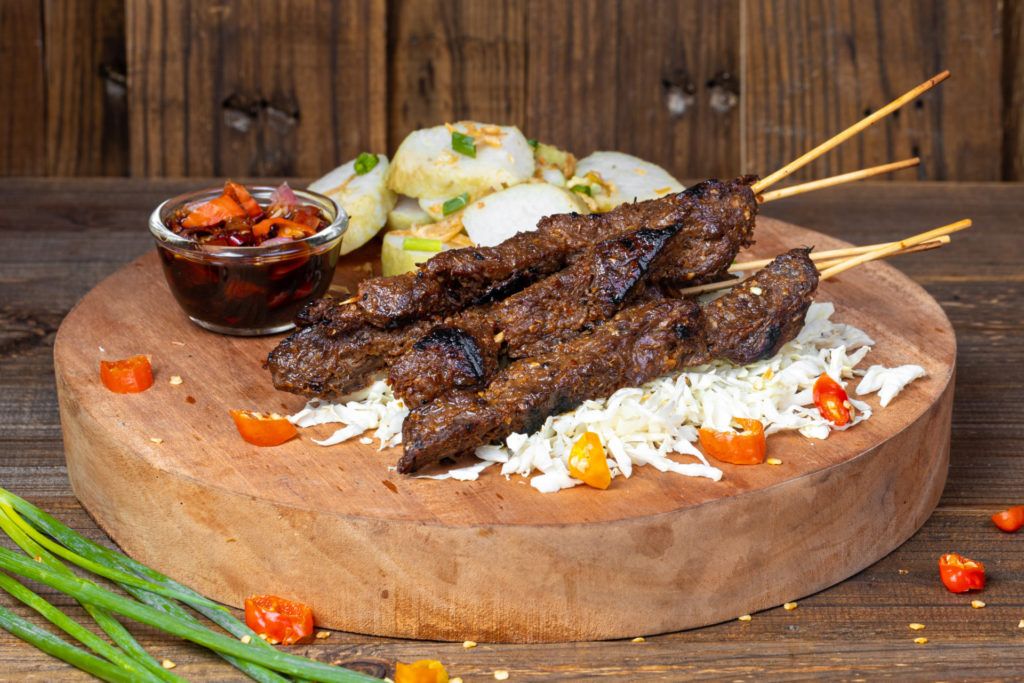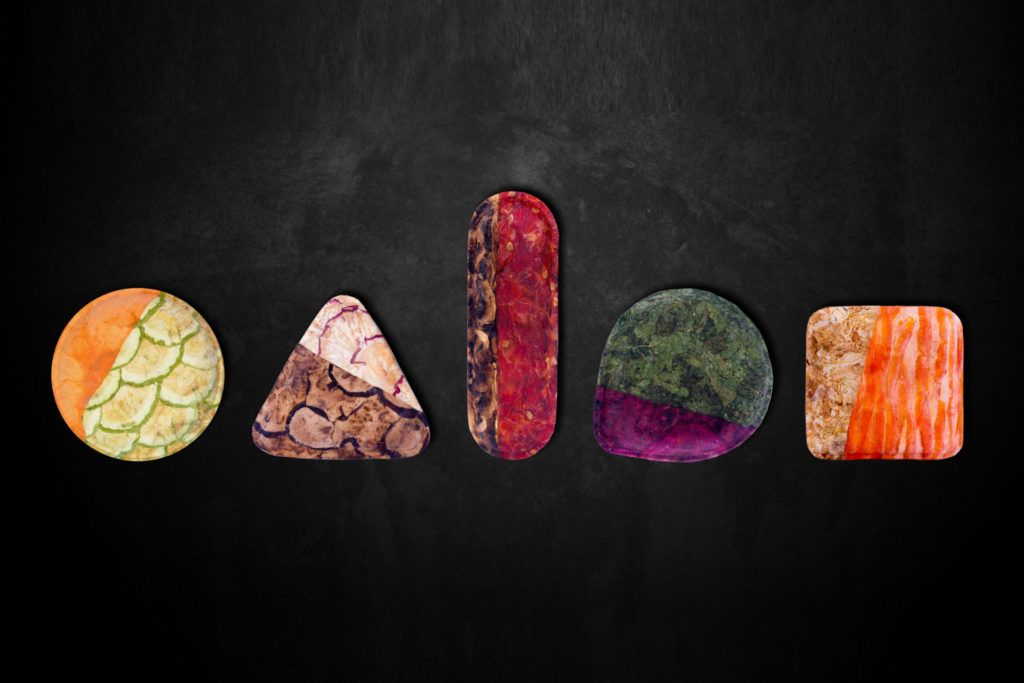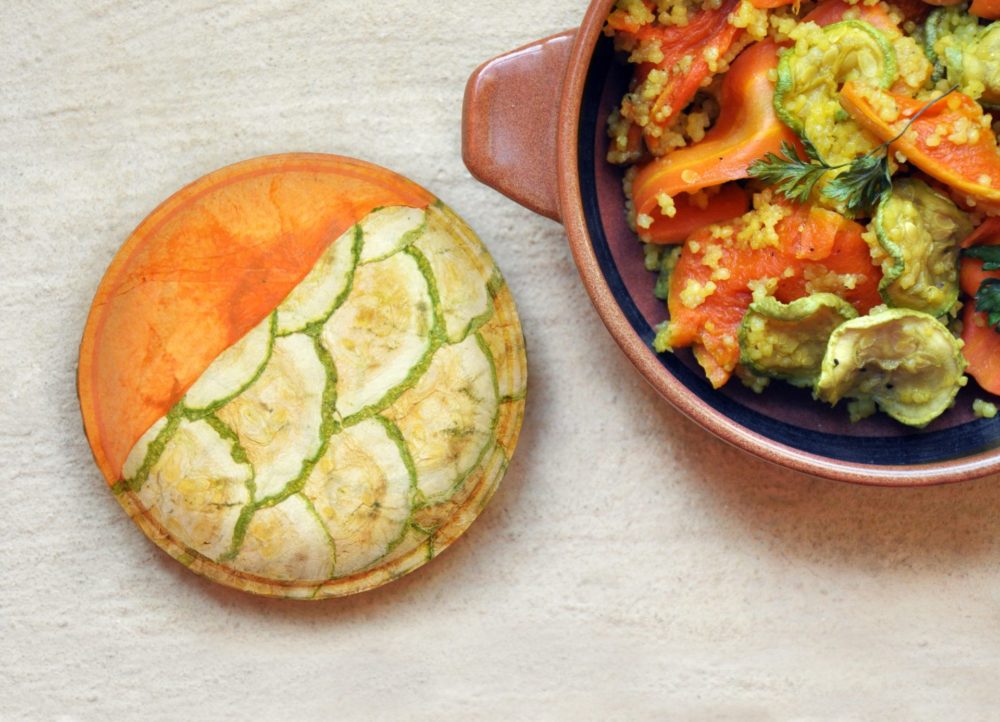Disclosure: GROW is backed by AgFunder, which is AFN’s parent company.
In May, GROW — the Singapore-based, impact-focused accelerator backed by AgFunder — unveiled the 10 startups that would be joining the latest cohort of its flagship Impact Accelerator program.
The cohort represents some of the most promising tech innovations that can enable greater sustainability for the food and agriculture sectors – from alt-protein and food waste reduction, to farm robotics and business solutions for smallholders.
Kicking off a series of roundtable articles that will introduce our readers to the GROW Impact Accelerator’s latest intake, AFN recently talked to team members from three startups which are playing their part in the ongoing plant-based food revolution:
- ANINA Culinary Art (Israel) is creating food laminates from unwanted ‘ugly’ fresh produce, using them to encapsulate ready-to-cook, nutrient-rich meals.
- Green Rebel Foods (Indonesia) is the Southeast Asian archipelago’s top-selling plant-based protein brand, using local ingredients to create clean-label meat alternatives with distinct Asian flavors.
- Rainfed Foods (Canada) is developing ingredients for plant-based foods using millets, which are healthier and more sustainable than conventional plant protein sources such as almond, pea, and soy.
Read on to hear more from:
- Anat Natan, co-founder and CEO, ANINA (AN)
- Idan Shafrir, vice president of R&D, ANINA (IS)
- Helga Angelina Tjahjadi, co-founder and CEO, Green Rebel (HA)
- Sujala Balaji, founder and CEO, Rainfed (SB)
AFN: What does ‘impact’ mean to you personally, and to your organization?
AN: Impact is our way to change and improve our world in all aspects of life. It can be bottom-up — by changing how we treat other people — or top-down, by supporting agendas and ideas that can improve and change our world. At ANINA, we seek to reduce food waste to fight climate change and support the circular economy, giving back to our community. In addition, we aim to bring back the excitement and richness of experience to simple, nutritional, plant-based food. We believe this experience got lost along the way with mass production of food.
HA: Impact, to us, means making positive contributions to consumers, employees, and planetary health through everything that we do. Our company was founded based on a mission to make foods that are healthy for consumers and the planet – making social and environmental impact is the reason why the company exists.
Southeast Asian cuisine is often rated as the best in the world. We hope Green Rebel can spice up the plant-based movement globally by bringing these authentic flavours to it in Asia and beyond.
SB: Impact has been embedded in our DNA from the beginning. The first thing that excited us about GROW is that it’s called an Impact Accelerator.
[To me] impact refers to the ability to create change, to influence change in a positive way – whether that’s by affecting health, or sourcing ingredients by treating smallholder farmers fairly and helping them empower themselves out of poverty by creating these supply chain relationships.
As a company that focuses on alternative proteins, impact has been super important for us. We are doing this because we want to create products that are better for the planet, solving for climate change by reducing carbon emissions through the ingredients we source.
AFN: What problem is your company trying to solve, and how does your technology offer a solution?
IS: When it comes to ready-to-cook meal choices, the hectic pace of modern life drives consumers to seek ease and convenience. However, this choice comes at the price of compromised nutrition and an unhealthy diet. The modern consumer is facing an impossible dilemma: convenience, or healthy and nutritious food? We enable consumers to stop compromising when it comes to their nutrition.
SB: We create plant-based protein alternatives, starting with dairy-free products that are packed with nutrition, taste amazing, and have a cleaner label, using underutilized crops like millet.
Millets are nutritious, climate-resilient, rain-fed crops that don’t require lots of water to grow. One of the reasons why Rainfed was formed is that we’re particularly reliant on a handful of crops to produce our food. We can’t continue to produce our food as we have been – the topsoil layer is deteriorating, there are only a few harvests left in many places, and monocropping with intensive use of inputs has been taking over the agrifood system. Rainfed can contribute to increased biodiversity by [helping society towards] eating more millets.
HA: Twenty percent of early deaths worldwide are attributed to poor diets which are high in meat and processed food intake, and climate scientists have agreed that animal agriculture is one of the main contributors to climate change due to highly inefficient land and water use, and extensive greenhouse gas emissions and water pollution. Plant-based meat alternatives have up to 15x less of an environmental impact than animal-based meat, and can provide clean protein without the cholesterol and highly saturated fat. Green Rebel provides the sensory pleasure of eating meat combined with bold Asian flavours, without the negative health and environmental impacts.

AFN: Could you share some case studies and figures to illustrate the impact your technologies and solutions can create?
SB: Millet is not just one crop. There are many different varieties, each with its own nutritional benefits. One type of millet has 3x more calcium compared to [cow’s] milk. Another has really high iron content. And another has high protein. What we’re doing is tapping into the nutritional benefits of those different varieties and, in combining them, creating a perfectly balanced, nutritious milk.
IS: Every 10 tons of ANINA’s capsules can save around 3.5 tons of dried ‘ugly’ produce from going to waste.
HA: We have heartwarming testimonials from our customers on how our products have helped them adopt a healthier and more sustainable diet – from people with chronic health conditions to Earth-loving millennials. Many of our customers also shared how Green Rebel products have helped them introduce plant-based eating to their meat-loving families who don’t like vegetables.
On the environment side, we have replaced over 50,000 meat servings, and saved 158 million liters of water, 347,000 square meters of land, 351,000 kilograms of CO2, and 50,000 animal lives within eight months of launching.
AFN: What gives your company its competitive edge and differentiates it from others trying to solve the same problem?
HA: Strong innovation, deep culinary knowledge, rapid speed to market, as well deep understanding of the Asian market – given our experience in running an agile F&B chain [Burgreens.] We are happy to see others trying to solve the same problem. The problem is so huge, we cannot make big waves alone. We need more people to educate the market about the importance of going as plant-based as possible.
AN: Our capsules combine the next-generation consumers’ preferred eating experience with a winning culinary-organoleptic tasting experience, a fast and convenient cooking process, and all in a product which is 100% natural, nutrient-rich, designer-designed, and made from ‘ugly’ produce that would otherwise be wasted.
SB: When people hear we’re working in this space, they say it’s too crowded, too competitive. Yes, there are lots of dairy alternatives – but what we’ve created is a true next-generation product. Most of the existing alternatives were created for the previous generation, decades ago — whether its rice, soy, almond, cashew, or coconut milk — and mainly for people with allergies, like lactose intolerance. It’s just in the last five to 10 years that people started thinking about the environmental benefits.
What we’re creating is Milk 2.0. A product created for this generation, where consumers don’t have to sacrifice taste, nutrition, or cleaner ingredients. There’s not a lot of competition in this regard. Only pea-based milk delivers comparable protein. But soy has an issue with allergens, and some negative associations with hormones and GMOs and deforestation. Almonds, which make up 65% of what’s consumed as dairy-free milk here in the West, consume four times more water than millets.
AFN: What have been some of the biggest challenges for your startup so far? What have been some of the biggest successes?
AN: Our biggest challenge was to take the home-development idea created by ANINA’s other co-founders [Meydan Levi and Esti Barantz] who are industrial designers, and bring it to food industry standards in terms of food safety and production scale.
In the past year, we have finished developing our first products, building a small pilot production line, and filing our patent application. The biggest success we’ve had was to accomplish all this in less than a year. In addition to this, we were chosen by Nestlé to compete in MassChallenge‘s global Sustainable Food Systems challenge, winning second place.

SB: Covid-19 has made life really difficult because we’re trying to work with our research partner, but not in person. Creating these partnerships when we’re not allowed to meet in person definitely adds to the complexity of getting things done. Communicating and providing instructions without being able to run the trials ourselves has been a challenge, as has conducting R&D and product testing to get feedback from consumers. There have also been Covid-related supply chain delays in receiving materials. [So we had to find] creative ways to recreate our product at a smaller scale before we’re ready to scale up.
HA: One of the biggest challenges is to maintain product consistency as we scale manufacturing with the leaps of demand that we are facing. The other is to educate the market so plant-based eating becomes a norm in Indonesia, not only a trend that comes and goes. One of our biggest successes is the fact that some global brands, such as Ikea and Starbucks, and some legendary brands in Indonesia, are excited to work with us in introducing plant-based menus to the mainstream crowd.
AFN: What was your motivation for joining the GROW Impact Accelerator?
AN: It stemmed from several aspects. First, the exposure to information and the network strength that AgFunder has to give startups is enormous. Second, exposure to the Asian market was important to us due to the lack of sufficient knowledge and connections to study the business opportunity to enter this market.
We get all the professional support we need to have a better business model, production process, and brand and product proposal worldwide. The GROW team gives us great insights into working as an impact-oriented startup in the foodtech world.
HA: Our motivation is to grow outside Indonesia and get connected to other start-ups in the region. Being part of GROW Impact Accelerator helps us to think ahead of our expansion strategy for markets outside Indonesia, and get validation from industry experts. [Throughout the program] we are pushed to refine our go-to-market strategy and have learned practical knowledge on pitching. We got some interesting feedback to improve our storytelling and the way we present the company. My personal favorite part of the accelerator is the coaching calls – we got a strategic innovation idea and valuation benchmark from one of the calls which will boost our expansion overseas!
SB: GROW so far has been really amazingly helpful in connecting us with right people, the right support, and with the other entrepreneurs in the cohort. We feel heard and seen by the GROW team. That has been pleasantly surprising.





